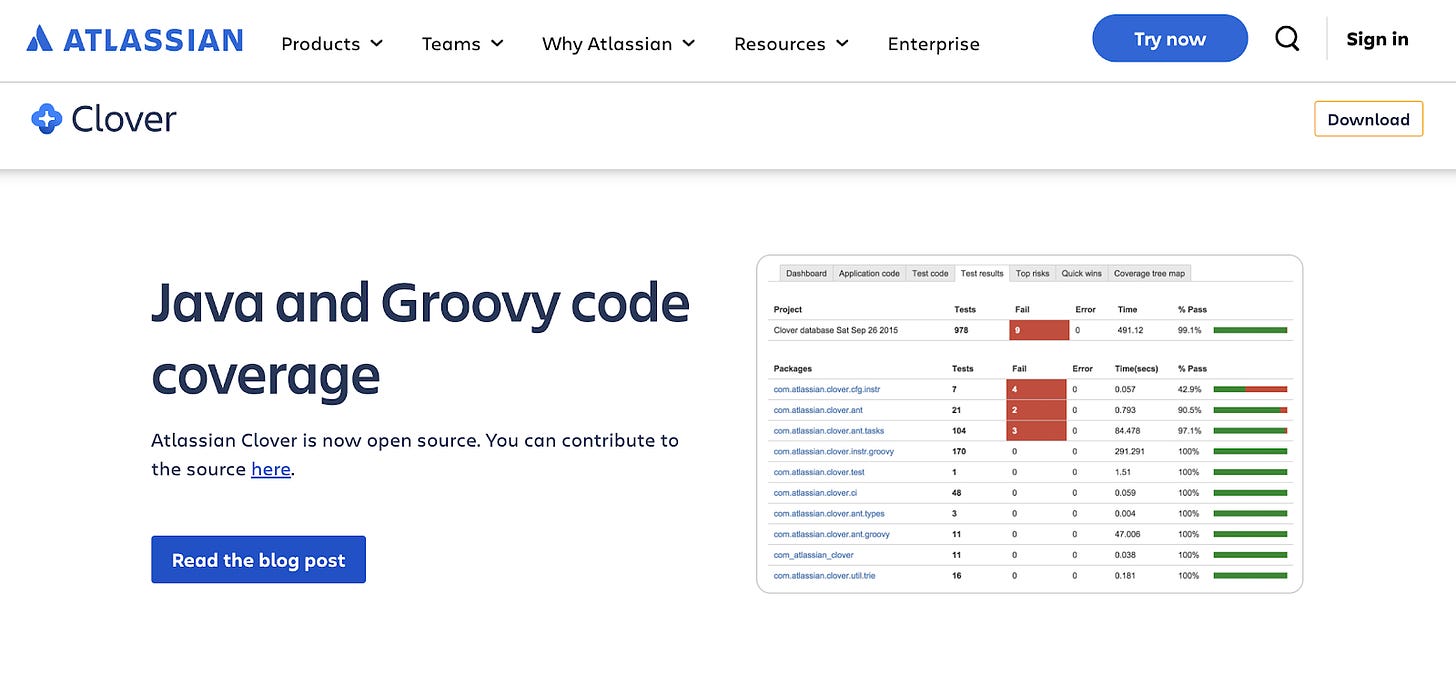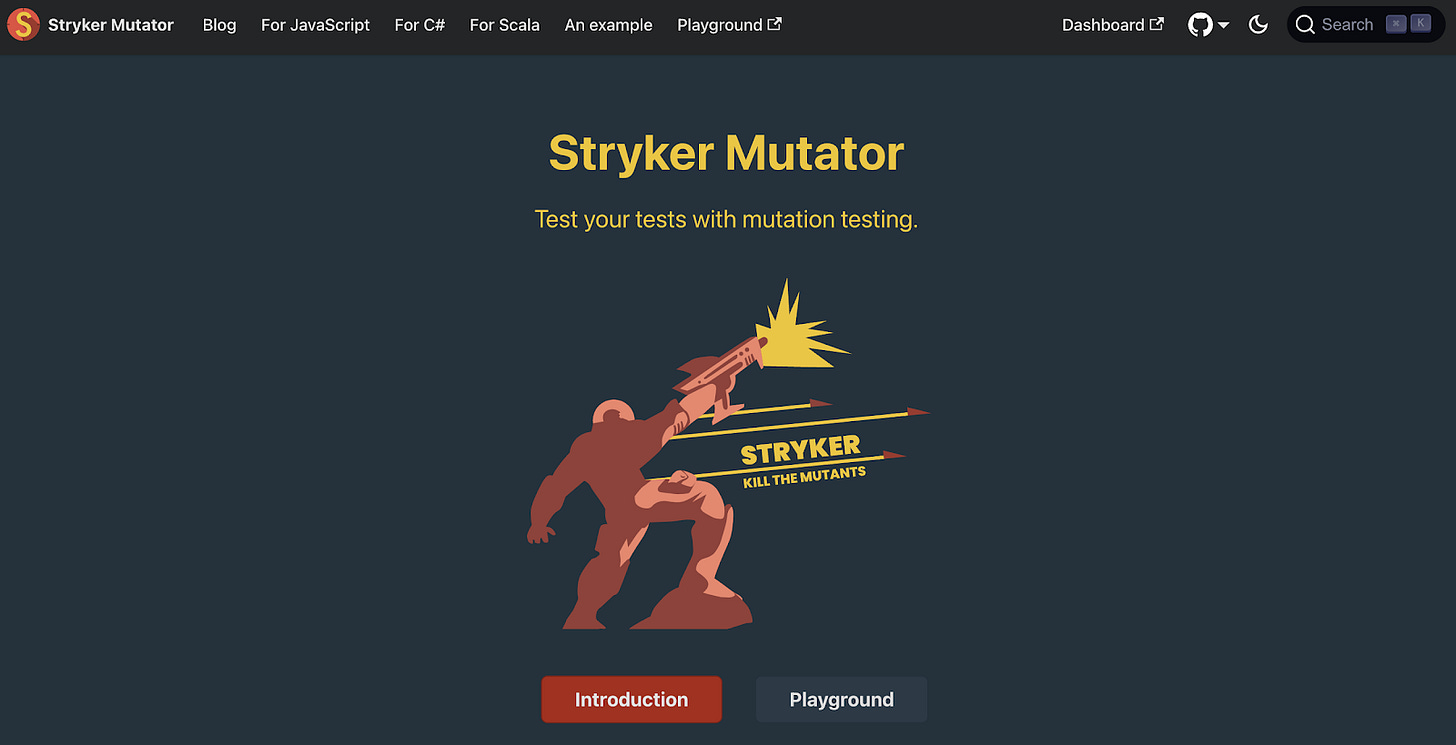Top 17 Best Unit Testing Tools
Category 1: Mocking and Stubbing Tools
Mocking and stubbing tools enable the isolation of a unit of work by removing outside dependencies, allowing isolated testing of each unit’s internal functionality.
1. Mockito
Mockito is one of the most popular unit test frameworks in Java. It allows developers to mock objects and verify method interactions during tests.
Main Features:
Mock objects and methods.
Verify method calls.
Defines specific responses for methods during tests.
Allows flexible verification of method arguments.
Best for: Java developers who need to isolate units and verify interactions with dependencies in their tests.
2. Sinon.js
Sinon.js is a versatile JavaScript library that can create mocks, stubs, and spies. It works well with JavaScript testing frameworks like Mocha and Jasmine.
Main Features:
Mock and stub functions.
Spy on function calls.
Support for fake timers to control time-based code in tests.
Best for: Ideal for testing external behaviors in JavaScript applications.
Category 2: AI-Powered Test Automation
Test runners and automation enhancers streamline unit test execution, automate processes, and integrate with various testing frameworks. With automation testing, developers can quickly run a suite of tests, save time, and ensure consistent, reliable results.
3. Early
EarlyAI is a new generation tool intended to automatically generate validated and verified unit tests, by leveraging AI to support both small- and large-scale unit testing. It supports popular testing frameworks like Jest, Vitest and Mocha, providing automated, high-coverage testing directly within VSCode.
Main Features:
It uses Generative AI to create unit tests on a method level, pull request (PR) level and at scale.
Supports testing frameworks, including Jest, Vitest and Mocha.
Delivers comprehensive test coverage and high mutation scores.
Provides real-time insights into code quality and potential issues.
Integrates directly with VSCode.
Best for: JavaScript, TypeScript & Python teams seeking automated, high-coverage unit testing supports Jest, Vitset, Mocha, VSCode.
Category 3: Code Coverage Tools
Code coverage tools measure the extent to which your code is tested, identifying critical code paths and highlighting untested areas.
4. Istanbul
Istanbul is a code coverage tool for node and browser JavaScript that tracks the percentage of your code covered by tests and gives detailed coverage reports.
Main Features:
Coverage reporting.
Integration with testing frameworks and the build tools.
Supports multiple output formats including HTML, text, and JSON.
Best for: JavaScript developers who require comprehensive code coverage reports.
5. Clover
Clover is a code coverage tool for Java applications, providing detailed coverage reports to help developers locate untested code areas.
Main Features:
Generates detailed reports with code coverage statistics.
Integrates with build tools like Jenkins, Maven, and Gradle.
Supports test optimization by focusing on untested code.
Best for: Java developers aiming to verify specific code lines for enhanced testing accuracy.
Category 4: Test Data Generation Tools
Test data generation tools automate the creation of data sets for testing, allowing unit tests to run across diverse inputs.
6. Factory Boy
Factory Boy is a Python tool to automatically create realistic and structured test data, helping developers to have credible test data for unit testing.
Main Features:
Generates realistic fake data.
Customizable to fit specific test requirements.
Seamless integration with pytest and Django.
Best for: Python developers who need structured and programmable test data.
7. Mockaroo
Mockaroo is an online tool used to create realistic fake data in various formats like JSON, CSV and SQL.
Main Features:
Customizable data generation using formulas.
Supports setting validation rules.
Provides a RESTful API for programmatically generating data.
Best for: Developers needing quick and versatile test data across multiple formats.
Category 5: Assertions Libraries
Assertions libraries are commonly used to take the guess work out of determining the effectiveness of unit tests by offering a variety of assertions that compare the real and expected results.
8. Chai
Chai is an assertion library used with testing frameworks such as Mocha and Jest for unit testing to check whether the tested code produces the expected result.
Main Features:
Support BDD, TDD, along with assert and ad hoc assertions.
Integrates smoothly with Mocha and other testing frameworks.
Extensible with plugins for added functionality.
Best for: JavaScript developers needing flexible and customizable assertions for testing.
9. AssertJ
AssertJ is a Java library that provides a rich set of assertions for unit tests. It is designed to be fluent and highly readable.
Main Features:
Fluent API for chaining assertions.
Provides detailed and descriptive assertions.
Integration with JUnit.
Best for: Java developers seeking a readable and intuitive syntax for assertions.
Category 6: Property-based Testing Tools
Property-based testing tools generate a wide range of test cases based on the properties of the system under test.
10. QuickCheck
QuickCheck is a tool built within Haskell. It is used for testing, generating a large number of test cases based on the properties of inputs to test code.
Main Features:
Property-based test generation.
Integration with Haskell code.
Shrinks failing cases to simplify debugging.
Best for: Haskell developers wanting to run tests based on input properties.
11. Hypothesis
Hypothesis is a property-based testing library for Python that automatically generates a large number of test cases that can evaluate different code behaviors.
Main Features:
Automatic generation of diverse test cases.
Integrates with pytest.
Stores examples of failing cases for reuse.
Best for: Python developers interested in property-based testing to explore varied code scenarios.
Category 7: Snapshot Testing Tools
Snapshot testing tools capture the current output of a component or API response and compare it with future test runs to detect unintended changes.
12. Jest Snapshots
Jest Snapshots is a testing tool within Jest that allows for the creation of snapshots of a component output or the API response so that the resulting string can be compared in the future to detect any accidental change.
Main Features:
Automatic snapshot generation.
Compares current outputs with saved snapshots.
Integrates seamlessly with Jest.
Best for: JavaScript developers using Jest unit testing.
13. Ava Snapshots
Ava Snapshots is a feature of the Ava testing framework that supports snapshot testing of component renderings or API responses.
Main Features:
Snapshot comparison for validating output consistency.
Built for modern JavaScript development.
Works with multiple formats like JSON, Strings, Array, and Binary data.
Best for: JavaScript developers using Ava for unit testing.
Category 8: Static Analysis and Linting Tools
Static code analysis and linting tools do a thorough review of code ensuring that errors and potential errors, stylistic errors, and even best practices implementation can be adhered to and followed.
14. Spectral
Spectral is an open-source static analysis tool typically used to evaluate API definitions for compliance with a set of coding standards.
Main Features:
Lints API definitions.
Customizable rules to fit specific API guidelines.
Supports JSON and YAML formats.
Best for: Developers working with API definitions who require the tool for conformance and quality.
15. SonarQube
SonarQube is a popular tool for analyzing source code across multiple languages and identifying bugs, security vulnerabilities, and code smells.
Main Features:
Supports multiple languages including Java, JavaScript, Python, Ruby, etc.
Provides detailed reports on code quality, security, and maintainability
Integrates with CI/CD pipelines.
Best for: Teams looking for a static analysis tool that supports multiple programming languages.
Category 9: Mutation Testing Tools
Mutation testing tools evaluate the effectiveness of test suites by introducing small changes (mutations) into the code to check if tests can catch them.
16. Stryker
Stryker is a mutation testing tool that works with JavaScript, TypeScript and other languages. It injects mutants into the code to measure the adequacy of test suites.
Main Features:
Only tests code changes since the last run.
Generates detailed mutation coverage reports.
Customizable mutation strategies.
Best for: Most suitable for developers who wish to know their test suites’ robustness.
17. Pitest
Pitest is another popular mutation testing tool designed for Java. It is highly scalable and integrates with modern building tools.
Main Features:
Java support.
Mutation coverage reports.
Integrates with build tools like Maven and Gradle.
Best for: Best for Java developers looking to evaluate the robustness of their unit tests.
Achieve Unmatched Code Quality with Unit Testing Tools
Unit testing is essential for ensuring code quality, reliability, and efficiency in modern software development. By using specialized tools, developers can cover a wide range of testing needs, catch bugs early, and streamline workflows.
For Developer teams seeking to automate their testing processes, Early’s innovative, AI-driven solution offers a powerful advantage. With features like automated unit test generation, real-time analysis, and seamless integration with popular IDEs like VSCode as well as support for test frameworks like Jest, Vitest and Mocha. EarlyAI makes it easier to deliver high-quality code while saving valuable development time.
Explore how Early can transform your testing strategy and enhance your code quality—start your journey today with Early.



















